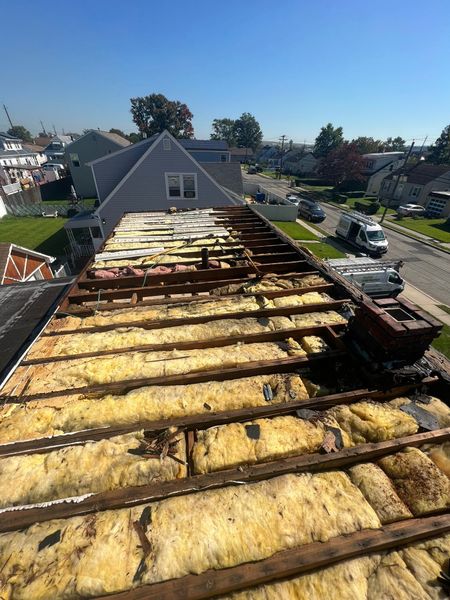Introduction
Owning a home comes with its fair share of responsibilities, and one of the AvantGarde Construction LLC deck builders most critical aspects is maintaining the roof over your head. It may not always be top of mind, but knowing when to schedule a roof inspection can save homeowners from costly repairs and extend the life of their roofs. This article serves as your ultimate guide, packed with practical advice, tips on how to choose the right roofing contractor, and insights into the most common roofing issues. So grab a cup of coffee and dive into this exhaustive exploration that promises to empower you in making informed decisions about your home's roof.
When to Schedule a Roof Inspection: Key Timing Tips for Homeowners
Scheduling a roof inspection is crucial for maintaining your home’s structural integrity. But when exactly should you pull the trigger? Here are some key timings:
1. After Severe Weather Events
Severe weather events like storms, heavy rain, or hail can wreak havoc on your roof. If you experience any of these weather conditions, it’s wise to have an inspection within a week afterward.
- Why? Damage from hail can be subtle; missing it could lead to leaks down the line. How? Look for signs like missing shingles or visible water stains inside your home.
2. Seasonal Inspections: Spring and Fall
Most experts recommend scheduling inspections during spring and fall—right before major weather changes.
- Spring: Snowmelt can create ice dams and leaks; this is the perfect time to check for hidden damage. Fall: Before winter sets in, ensuring your roof can handle snow loads will save you headaches come January.
3. Age of Your Roof
If your roof is nearing the end of its expected lifespan (which varies by material), proactive inspections become even more essential.
- Asphalt Shingles: 20-25 years. Metal Roofing: 40-70 years depending on maintenance.
4. Selling Your Home
Planning to put your home on the market? A pre-sale inspection can help identify issues that might scare off potential buyers.
- A well-maintained roof adds significant value.
Signs Your Roof Needs Immediate Repair
Knowing when to get help is half the battle. Here are some key indicators that it’s time for immediate action:
1. Water Stains on Ceilings or Walls
If you're spotting brownish stains indoors, it’s likely water is seeping through due to compromised roofing materials or poor flashing.

2. Missing or Damaged Shingles
A few missing shingles can lead to bigger problems if left unattended. Check periodically after storms or high winds.
3. Granules in Gutters
Finding shingle granules in your gutters signals wear and tear; it's time for an inspection before further damage occurs.
How Much Does Roof Repair Cost?
Understanding costs helps homeowners budget effectively:
| Type of Damage | Estimated Cost Range | |----------------------|-------------------------| | Shingle Replacement | $100-$300 per square | | Leak Repair | $200-$500 | | Complete Overhaul | $5,000-$30,000 |
Factors affecting costs include:
- Material type Roof pitch Accessibility
Roof Maintenance Tips to Extend Roof Life
Regular maintenance prolongs the life of your roof significantly:
Clean Gutters Regularly- Prevents water backup which leads to leaks.
- Reduces debris accumulation and potential punctures.
- Ensure all seams are sealed properly; reapply caulk where needed.
- Poor ventilation causes heat buildup leading to premature aging of roofing materials.
- Catch minor issues before they become major headaches!
How Weather Impacts Different Roof Types
Weather plays a significant role in determining how often you should inspect various roofing materials:
Asphalt Shingles
These are particularly susceptible to heat damage in sunny climates but perform well against rain if maintained properly.
Metal Roofing
Lasts long but can be affected by heavy snow loads; seasonal inspections ensure there are no weak points.
Tile Roofing
Great for hot climates but prone to cracking under freezing temperatures; regular checks are vital after winter months.
Understanding Roofing Warranties
Before signing any contracts, understand what warranties cover:
Workmanship Warranty- Covers installation errors usually lasting 1–10 years.
- Protects against defects but has specific terms regarding proper maintenance.
What Should You Ask Before Signing a Roofing Contract?
Prioritize clarity by asking these questions:
What is included in the estimate? How will you handle unexpected complications? Are you licensed and insured? Can I see reviews or testimonials? What steps do you take for safety?
Being informed will empower you when selecting contractors!
FAQs About Roof Inspections
1. How often should I schedule a roof inspection?
Typically, once every year is recommended, along with after severe weather events.
2. What signs indicate I need an inspection?
Water stains, missing shingles, or granules in gutters are key indicators.
3. How long does a typical roof last?
Depending on materials used—shingles last around 20–25 years, while metal roofs can last over 40 years with proper care.
4. Are all roofing contractors reliable?
No! Always check licensing and insurance details before hiring any contractor for work on your home.
5. What factors affect repair costs?
Material type, extent of damage, labor fees, and location all play roles in pricing repairs effectively.
6. Can I conduct an initial inspection myself?
Yes! Basic checks like looking for visible damage from ground level are possible—just ensure safety first!
Conclusion
Knowing when to schedule a roofing contractors roof inspection is pivotal in protecting one of your most significant investments—your home! By keeping an eye out for warning signs and scheduling regular inspections during strategic times throughout the year (such as post-storms or seasonally), you not only extend the life of your roof but also maintain its integrity against potential catastrophes down the line! Remember that taking proactive measures today saves both money and stress tomorrow!